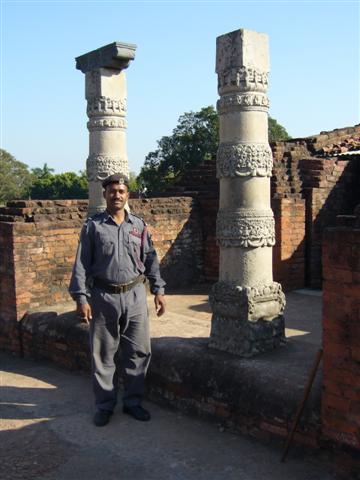Nalanda University: Difference between revisions
No edit summary |
No edit summary |
||
| Line 3: | Line 3: | ||
Located on the site of a mango grove where Buddha himself often visited, the university's date of origin is not known for certain, although some historians now think it dates to the time of Ashoka in the fourth century BC. What is known is that for at least one thousand years, until its destruction by Mogul invaders around 1200 AD, it was the most important place of learning of the ancient world, not only for Hinayana and Mahayan philosophy but medicine, logic, astrology, and many other subjects as well. | Located on the site of a mango grove where Buddha himself often visited, the university's date of origin is not known for certain, although some historians now think it dates to the time of Ashoka in the fourth century BC. What is known is that for at least one thousand years, until its destruction by Mogul invaders around 1200 AD, it was the most important place of learning of the ancient world, not only for Hinayana and Mahayan philosophy but medicine, logic, astrology, and many other subjects as well. | ||
The lecture halls cover many acres of land lined up along a long road that divides the teaching area from the adjoining temples. | The lecture halls cover many acres of land lined up along a long road that divides the teaching area from the adjoining temples. [[Image:Temple_remains_at_Nalanda_University_%28Small%29.JPG]] Along the edge of each lecture where rooms for the monks and their teachers. What remains is for the most part no more than several meters high, but the plan of the monasteries is still clearly in evidence. | ||
One of the most prominent feature of the Nalanda University ruins is the stupa built in honor of [[Image:Shariputra]] who, by tradition, both was born and died in the area. | One of the most prominent feature of the Nalanda University ruins is the stupa built in honor of [[Image:Shariputra]] who, by tradition, both was born and died in the area. | ||
Revision as of 10:21, 13 March 2007
Even a modern visitor to the ruins of Nalanda University cannot fail to appreciate the magnificence of this ancient place of learning. At its pinnacle as many as 10,000 monks lived and studied at this site. The list of famous students and teachers reads as a who's who of Buddhism's greatest thinkers: Nargajuna, Aryadeva, Shantideva, Asanga, Vasubhandu, Padmasambhava himself--just to name a few--all studied and/or taught at Nalanda.
Located on the site of a mango grove where Buddha himself often visited, the university's date of origin is not known for certain, although some historians now think it dates to the time of Ashoka in the fourth century BC. What is known is that for at least one thousand years, until its destruction by Mogul invaders around 1200 AD, it was the most important place of learning of the ancient world, not only for Hinayana and Mahayan philosophy but medicine, logic, astrology, and many other subjects as well.
The lecture halls cover many acres of land lined up along a long road that divides the teaching area from the adjoining temples. 
One of the most prominent feature of the Nalanda University ruins is the stupa built in honor of File:Shariputra who, by tradition, both was born and died in the area.